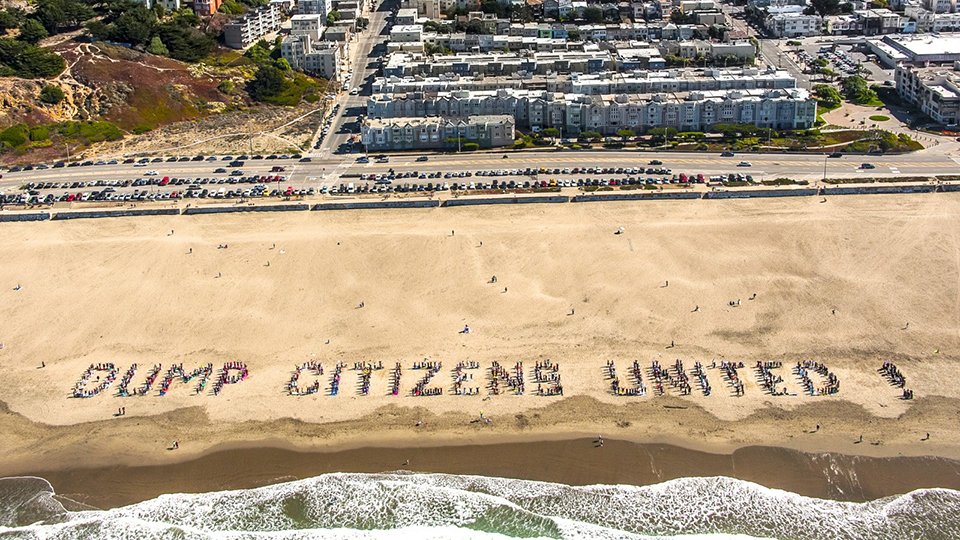Chief Justice John Roberts begins his opinion in McCutcheon v. FEC with a flourish: “[t]here is no right more basic in our democracy than the right to participate in electing our political leaders.” He then spends the next forty pages explaining why that participation includes the right of rich people to attempt to buy elections.
Thanks to the decision Roberts and his four fellow conservative justices handed down Wednesday (though Thomas did not join Roberts’ opinion, he wrote a more radical opinion calling for all limits on campaign donations to be eviscerated), wealthy donors now have a broad new power to launder money to political candidates — they just have to be a bit creative about how they do it.
Prior to Wednesday’s opinion, federal law placed two complementary limits on campaign donors. During the current election cycle, donors may give no more than $5,200 per election cycle ($2,600 for the primary and another $2,600 for the general) to a given federal candidate, and there are also higher limits on how much they can give to party committees and political action committees. These limits remain intact.
What McCutcheon invalidates are aggregate limits on the total amount of money that donors may give to all federal candidates ($48,600) and to all political committees ($74,600). Thus, before Wednesday, donors could spend as much as $123,200 seeking to influence the 2014 election cycle — now they can spend as much as they want.
Make no mistake, this decision benefits no one except for a handful of very wealthy donors (and the candidates they give to). Who else can say that they’ve already given more than a hundred thousand dollars worth of donations and that they are upset that they cannot give even more?
A major purpose of the aggregate limits was to prevent money laundering schemes that could enable donors and political parties to evade the cap on donations to individual candidates. In dissent, Justice Stephen Breyer lays out what some of these schemes could look like.
The Democratic or Republican Party, in one example, may set up a “Joint Party Committee” consisting of all three of their national party committees and a state party committee from each of the 50 states. Under McCutcheon, a single donor may now give as much as $1.2 million to this joint committee, which would then be distributed to the various smaller party organizations.
Once the money is distributed, however, it can legally be redistributed to the races where it is likely to have the most impact. Thus, for example, the Republican Party committees in safe red states like Idaho, Utah or Mississippi — where large infusions of money aren’t exactly needed to win elections — can redistribute their funds to battleground states like Ohio or Florida. Meanwhile, blue state Democratic committees in Vermont and Rhode Island can do the same.
Similarly, the same wealthy donor might decide to write a maximum dollar donation to every single Republican House and Senate candidate in the country — perhaps by writing a single $2.4 million check to the same “Joint Party Committee” which then distributes the funds. Once this money is distributed, candidates in safe seats can then redistribute at least some of it to candidates in disputed seats — and the rest can frequently be used to benefit candidates in tough races through “coordinated expenditures.”
Roberts denies that these money laundering schemes will actually arise, but many of the arguments he raises to defend this point betray his own naiveté how modern elections work. The Chief Justice argues, for example, that for these money laundering schemes to work a donor would have to engage in “illegal earmarking” — federal law prohibits a donor from “directing funds ‘through an intermediary or conduit’ to a particular candidate.”
But a wealthy donor does not need to earmark his donations for these money laundering schemes to work. Indeed, it is in both the donor’s interest and the party’s interest if the donor does not do so. A donor will typically want his money to go to the candidates who are most likely to benefit from his money — those in closely contested races. By donating to a joint party committee, the donor gives their party more flexibility to redirect their money to the candidates who appear most in need as the election approaches.
Similarly, Roberts claims that “[t]he Government provides no reason to believe that many state parties would willingly participate in a scheme to funnel money to another State’s candidates.” But this argument assumes that each state Democratic or Republican Party is an island. If Republicans control the Senate, Mississippi’s Republican senators have more clout and Mississippi Republicans benefit.
The same applies to Rhode Island’s Democratic senators when Democrats control the Senate. America has two national parties and it has a national legislature. When Iowa elects Republicans to Congress, that makes it more likely that Republicans in Mississippi will see their preferred policies enacted into law.
Roberts does, however, raise one fairly strong argument in support of his belief that wealthy donors will not resort to complicated money laundering schemes — thanks to the line of cases culminating in Citizens United, they won’t have to.
Before McCutcheon, wealthy donors basically had free reign to spend as much money as they wanted seeking to influence elections, just as long as they give that money to “independent” organizations such as super PACs. In light of this body of law, why would a candidate resort to an elaborate money laundering scheme when they can simply write a check to the super PAC of their choice?
It’s a good question, and not an easy one to answer. But it’s hardly an argument for eliminating even more limits on how far the wealthy can go to influence elections. If allowing a single person to spend millions of dollars to change the outcome of an election is a bad idea, then it is a bad idea no matter what kind of legal regime permits that spending to take place.
3 WAYS TO SHOW YOUR SUPPORT
- Log in to post comments
















